Providing Microbusinesses With Tax Services

Small businesses are, according to the most recent data from the US Census Bureau, in serious trouble. The total number of business failures is now larger than the number of new business startups. Among US businesses that employ one or more persons, four hundred thousand are being created each year, while 470,000 are dying annually.
Up until 2008, startups outpaced business failures by about 100,000 per year. In the past six years, that number has reversed itself, putting the nation at a negative 70,000 for businesses that are sustainable.
This decline in small businesses could portend a disaster for tax services that are not prepared for its impact. At the same time, it may present opportunities for services that position themselves to identify and pursue the business startups that do survive. That is, those that pursue the smallest of small businesses, termed “microbusinesses.”
A microbusiness is one that has five or fewer employees. According to the Association for Enterprise Opportunity, these are enterprises with $5 million to $20 million in revenue, independently owned and operated, and represent 92% of all US businesses, providing approximately 41.3 million jobs.
While small businesses may be struggling, the number of microbusiness startups continues unabated. And whether they are in business for one year or 10, they will need tax services. Trends driving this need include:
- Low cost of starting a microbusiness. These are, according to the US Small Business Administration, companies that require an average of only $35,000 to get started.
- The complexity of the tax code. It’s not just the basic tax filings. With the advent of the Affordable Care Act, there are new tax rules related to health care programs that include special provisions for small business health accounts covering both solo entrepreneurs and microbusinesses.
- Opportunities in tax benefits. Lowering the tax burden is a long term strategy that affects profitability, business organization, investments, and workflow. The better you can help to manage this burden, the more value a tax service will have to microbusinesses.
- Attention to microbusinesses is growing. From the IRS and Small Business Administration to the House of Representatives Small Business Committee, governments at the federal and state levels are realizing the importance of helping these very small businesses survive.
The benefits of service this market are substantial. For tax practices looking to build their corporate tax client base, this is an opportunity to break into this niche is a way that does not put the practice head-to-head with larger firms. In addition, it provides access to more individual tax clients – remember that for every microbusiness account, there are potentially up to five individual tax clients to be gained with a minimum of marketing effort. Finally, microbusinesses tend to be very frugal, and are more likely to use a local tax resource with clearly (and potentially lower) defined service costs.
At the same time, serving this market niche will require some additional education and expertise. Here the resources available will be a critical asset.
- The SBIR Tour. While it focuses largely on financing small businesses, the SBIR Road Tour is a national outreach effort to provide through the Small Business Innovation Research (SBIR) and Small Business Technology Transfer (STTR) programs. The SBIR/STTR programs annually provide $2.5 billion in funding to small advanced technology firms to spur new technological discoveries and facilitate the commercialization of innovations. Together they represent America's Largest Seed Fund. This is also a good source of information about the microbusinesses marketplace. For a schedule of the road show in your locale, click here.
- The Business.Gov site. This site provides a single online access point to small business tax information – sparing busy entrepreneurs the task of wading through a variety of government Web sites, documentation and endless Google searches to find tax information that is relevant to the business. From one page you can find the answers to many tax related queries, as well as a few things you may not know such as how new tax laws will impact your businesses. It also has a useful blog.
- Section 105 of the Tax Code as it pertains to an Accident and Health Plan. The IRS affords for an Accident and Health Plan pursuant to Section 105 of the Code. This type of plan encompasses Revenue Ruling 71-588, is supported by Letter Ruling 9409006, and meets the compliance regulations of other government agencies including the Department of Labor (DOL) and the Employee Retirement Income Security Act (ERISA). The concepts surrounding both the rulings and the Code allow for a self-employed individual to employ his/her spouse who is active in the business, and to offer that employed-spouse a medical benefits package. The benefits offered cover the employee, the employee’s spouse, and the employee's dependents.
- Business.Gov Guide to Taxes and Credits. An online e wizard that highlights the applicable tax laws and credits for small businesses.
- Small Business and Self-Employed Tax Center. This site serves taxpayers who file a Form 1040, Schedules C, E or F, or form 2016 – as well as microbusinesses with assets under $10 million.
In the face of gains by the major tax preparation firms and others, it is incumbent upon owners of tax services to seek out new business, gain the necessary expertise to serve these markets, and to train staff members to assist in seeking out new opportunities. Serving the microbusiness market is one such opportunity.



